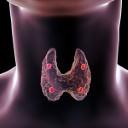-
Despite Generic Imatinib, Cost of Treating CML Remains High
The arrival of generic versions of the targeted therapy imatinib only modestly reduced the cost of treating chronic myelogenous leukemia patients, a study finds.
by Anna Azvolinsky
-
Drinking After a Diagnosis
A study illuminates the alcohol consumption habits of cancer survivors.
by Jen Tota McGivney
-
Nothing but Time
A father with metastatic kidney cancer embraces moments with his 3-year-old son while pondering how he'll be remembered.
by Adam P. Stern
-
Opioid Overdoses in Cancer Patients and Survivors
The number of cancer patients and survivors visiting emergency departments for opioid overdoses more than doubled between 2006 and 2015, but overdoses are still uncommon in this group.
by Emma Yasinski
-
Preparing Patients for Radiation Therapy Side Effects
A study shows that some cancer patients wish they had known more about possible adverse effects of treatment.
by Jon Kelvey
-
When Cancer Becomes an Unwanted Priority
Amanda Rose Ferraro's leukemia diagnosis forced her to spend time at the hospital away from her 3-year-old-son. She calls focusing on her health and leaving her son “the hardest thing I have ever had to do.”
by Amanda Rose Ferraro
-
Clinical Trials: An African American Survivor’s Experience
Melvin Mann benefited from joining a pivotal clinical trial for chronic myelogenous leukemia, but participation came with logistical challenges.
by Melvin Mann
-
Food Insecurity and Cancer
After discovering that some patients weren't able to access the food they needed, a community oncology practice partnered with a local food bank.
by Jen Tota McGivney
-
“Congrats! You Have the ‘Good’ Cancer”
Many people know thyroid cancer as a cancer type with a relatively good prognosis, but the disease still has profound effects on patients and survivors, writes thyroid cancer survivor Carly Flumer.
by Carly Flumer
-
Telling Your Children About Inheritable Cancer Risk
Letting children know they might have a mutation that increases their risk for cancer can be a challenge for patients. Experts stress there is no right or wrong way to share the information.
by Marci A. Landsmann
Cancer Talk
The Power of Comedy
In a new play, the pain of cancer can be a chance to laugh.
by Ashley P. Taylor
Melanoma Risk in Childhood Cancer SurvivorsPeople treated for childhood cancer found to have twice the risk of developing melanoma as an adult.
by Cameron Walker
Online Second OpinionsMore than half of patients who participated in a program offering online second opinions were recommended a change to their treatment plan.
by Eric Fitzsimmons
Musical Toxicity an Effect of Cancer TreatmentStudy finding cancer treatment affects ability to play or sing music highlights need for physical therapy, experts say.
by Kyle Bagenstose















